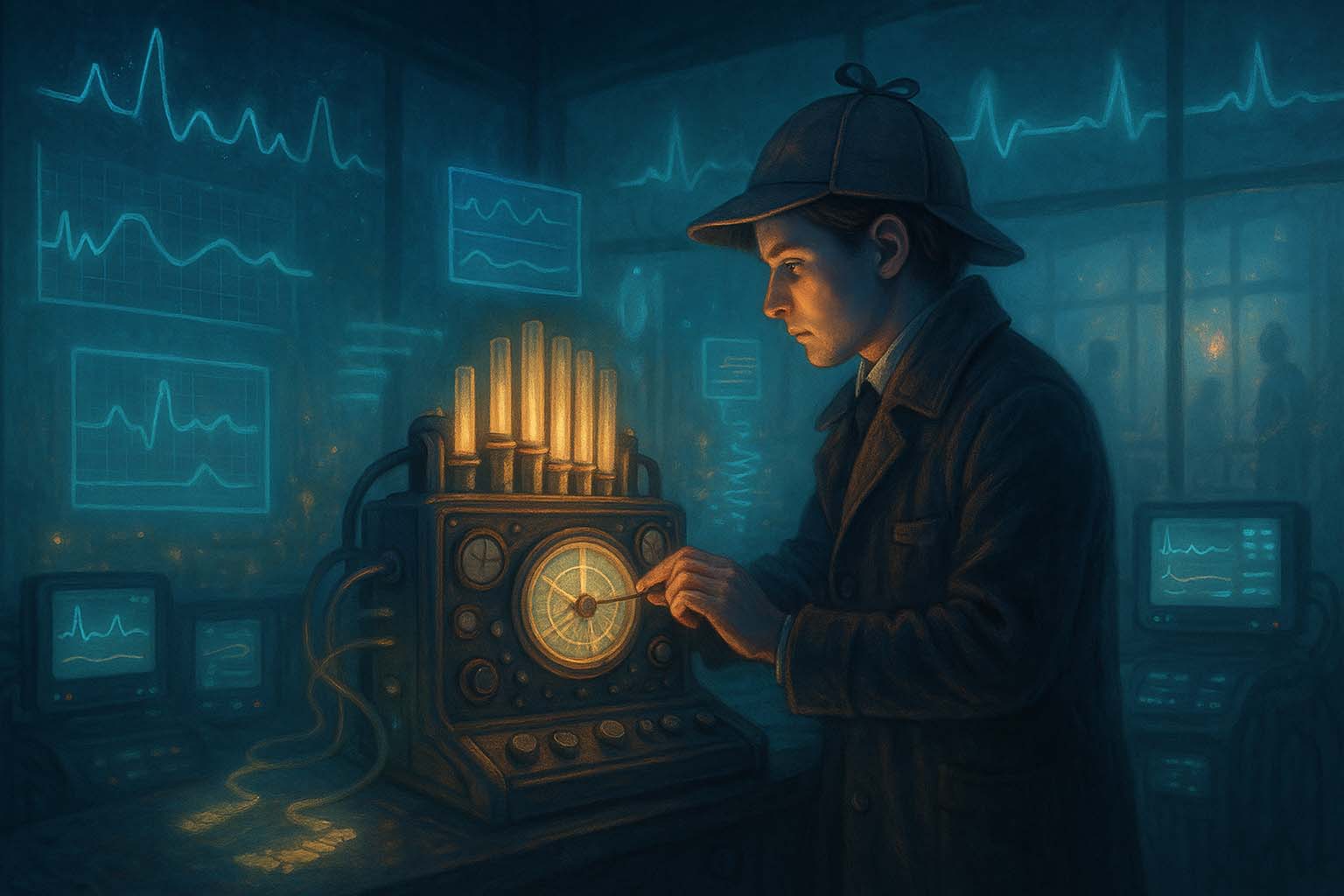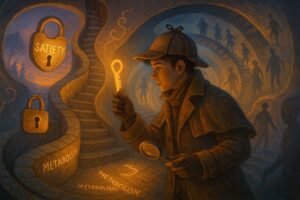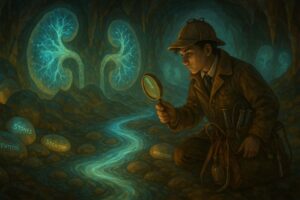
Critical Care Medicine
- Posted by admin
- Categories Specialised Surgical Fields
- Date May 24, 2025
- Comments 0 comment
The ICU Detective’s Domain - Cracking the Cases of Instability, Intubation, and the Threshold Between Life and Death
1. Introduction: The Scene of the Specialty
Step into the shoes of a Critical Care Medicine sleuth.
This is the last stronghold—the place where failing hearts, failing lungs, and failing systems are supported moment by moment. Intensivists are the detectives of deterioration, reading invasive lines like lifelines, adjusting ventilators like conductors, and managing the micro and macro all at once. Welcome to a world where numbers whisper and machines speak, and where staying alive is a dynamic, deliberate act.
2. Key Mysteries They Solve (Common Conditions & Crises)
These detectives specialise in solving cases involving:
- Multi-Organ Failure and Sepsis – systemic collapse from infection, trauma, or unknown causes.
- Respiratory Failure and ARDS – managing oxygenation, ventilation, and lung-protective strategies.
- Cardiogenic Shock and Post-Cardiac Arrest Care – titrating pressors, inotropes, and hope.
- Neurological Catastrophes – from brain swelling to coma, with GCS as the guiding compass.
Each case unfolds across hours or days—requiring watchfulness, adaptability, and deep pathophysiological insight.
3. Their Trusted Tools & Techniques
Every detective has their kit—and in Critical Care Medicine, tools may include:
- Ventilators and High-Flow Oxygen Delivery Systems – titrated breath by breath.
- Invasive Lines and Haemodynamic Monitors – central lines, arterial lines, and cardiac outputs mapped in real time.
- Sedation and Neuromuscular Management – balancing comfort, safety, and control.
- Renal Replacement Therapy (RRT) – when kidneys crash and the body needs filtering.
This is medicine in motion—where physiology is your puzzle and the patient’s life is the prize.
4. The Charms of This Field: Why It Captivates the Curious
- High Complexity: Every patient is a system, every intervention an orchestration.
- Team Leadership: You guide nurses, pharmacists, physios, and families through crisis.
- Advanced Technology: Work with cutting-edge support systems—ventilators, ECMO, CRRT.
- Profound Purpose: You don’t just stabilise—you hold the line when hope is thin and the future uncertain.
This is a specialty where you treat not just the illness—but the moment-to-moment battle to stay alive.
5. Challenges: The Toughest Cases They Face
- Emotional Intensity – Patients are often unconscious; families carry the fear.
- Ethical Dilemmas – When to escalate, when to stop, how to honour dignity in decline.
- Burnout and Fatigue – Long shifts, relentless monitoring, and moral injury from prolonged suffering.
- Diagnostic Ambiguity – You often treat before the full picture is known, or ever will be.
But the experienced intensivist knows: care is not measured only in survival—but in presence, precision, and peace.
6. Famous Cases and Hallmark Clues
- The “Classic Presentation” – Septic shock with rising lactate, dropping pressure, and rising vasopressor needs.
- The “Zebra” – Hypoxia despite clear lungs: think pulmonary embolism or methemoglobinemia.
- The “Aha Moment” – Agitation despite sedation: silent seizure activity on EEG.
7. Your Training Trail: How to Join the Investigation
To become a Critical Care Medicine detective:
- Start in internal medicine, anaesthetics, emergency medicine, or surgery—then sub-specialise in intensive care.
- Train in ventilator management, electrolyte and fluid balance, pharmacokinetics, and multi-organ support.
- Master end-of-life conversations, family communication, and team coordination.
- Embrace the unknown—many ICU decisions are made in the space between what is and what could be.
Whether reversing organ failure or guiding a family through letting go, you are the guardian of life’s most fragile hours.
8. Final Words: The Signature of the Critical Care Detective
Critical care detectives dwell in the margins between breath and breathlessness.
They calibrate life support with reverence, courage, and relentless curiosity.
They don’t just rescue—they witness. They don’t just monitor—they interpret.
So if you’re drawn to intensity, intricacy, and a calling where every second matters—then this is your chamber of vigilance and valour.



